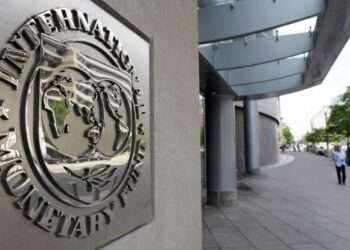For years, the US has positioned itself as Israel’s staunchest supporter, providing military aid and diplomatic cover. However, this support has often come at the expense of a balanced approach to the Israel-Palestine conflict.
The humanitarian crisis in Gaza, exacerbated by ongoing military actions, has reached a tipping point that demands urgent intervention—not just rhetoric.
US Ambassador to the UN, Linda Thomas-Greenfield, has issued a blunt statement at the UN Security Council (UNSC), telling ally Israel to urgently address “catastrophic conditions” in Gaza and stop “intensifying suffering” among Palestinians by limiting aid.
She stated that these catastrophic conditions were predicted months ago, and yet, have still not been addressed, adding, “That must change, and now. We call on Israel to take urgent steps to do so.”
Thomas-Greenfield also said communities in Gaza must be able to return home to rebuild after Israel issued new evacuation orders on Sunday for the north of the besieged enclave.
“There must be no demographic or territorial change in the Gaza Strip, including any actions that reduce the territory of Gaza.”
Linda Thomas-Greenfield
Despite these calls for accountability, the U.S. government remains deeply entwined in its commitment to Israel, as evidenced by President Biden’s reaffirmation of ironclad support during a phone call with Prime Minister Benjamin Netanyahu.
The call between the two leaders was their first publicly announced conversation since August.
The White House said in a statement that Vice President Kamala Harris, who is running to succeed Biden in the US presidential election next month, joined the call.
It is critical for the U.S. to adopt an approach that recognizes that genuine support for Israel includes advocating for the rights and well-being of Palestinians. This involves not only calling for immediate humanitarian access and aid but also taking a stand against actions that further entrench divisions and suffering.
White House spokeswoman Karine Jean-Pierre described the talks as direct and productive.
The call came as Israel considers an attack against Iran in response to Iranian ballistic missile launches that targeted Israeli military sites last week.
Biden condemned unequivocally Iran’s ballistic missile attack against Israel on October 1, 2024.
Jean-Pierre said Biden and Netanyahu had “discussions” about the confrontation with Iran, without providing further details.
The timing and scope of the Israeli retaliation is still unclear, and a miscalculation could propel Iran and Israel into a full-scale war, which neither side says it wants. The US, Israel’s staunch ally, is wary of being drawn into the fighting, and of oil price shocks.
Biden Stresses Diplomatic Solution To Crisis In Lebanon
The White House disclosed that Biden, in his call with Netanyahu, emphasised the need for a “diplomatic solution” to the crisis in Lebanon. Biden also expressed concern for Lebanese civilians.
The statement noted that Biden affirmed Israel’s right to protect its citizens from Hezbollah, which has fired thousands of missiles and rockets into Israel over the past year alone, while emphasizing the need to minimize harm to civilians, in particular in the densely populated areas of Beirut.
Responding to Israeli Prime Minister Benjamin Netanyahu’s threat that Lebanese people will see “destruction and suffering like we see in Gaza” if they do not oust Hezbollah, White House Spokesperson, Karine Jean-Pierre told reporters, “That is not what we want to see.”
“We cannot and will not see Lebanon turned into another Gaza.
“The suffering in both Gaza and Lebanon adds even greater urgency, as you’ve heard from us, to our efforts, certainly to end the conflicts and lay a foundation for lasting peace and security in the region.”
Karine Jean-Pierre
State Department spokesperson, Matthew Miller made similar comments, telling journalists that there should be no kind of military action in Lebanon that “looks anything like Gaza and leaves a result anything like Gaza.”
However, parts of southern and eastern Lebanon and the southern Beirut suburb of Dahiyeh are already seeing widespread destruction due to Israeli bombardments.
READ ALSO: Ramstein Summit Postponed



















